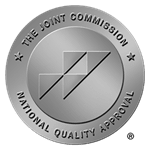Attachment Trauma: Causes, Symptoms & Treatments
Introduction to Attachment Trauma
Childhood is a foundational time in one’s life. For many, their childhood was lacking in any manner of ways – child abuse, abandonment, trauma, or general lack of proper care from parent(s) or caregiver(s).
What we experience in our childhood has a major lasting impact on our mental state as adults in our ability to form and maintain healthy relationships. Many people who struggle with their mental health or in keeping strong bonds with others may blame themselves when in reality, they’re suffering from a circumstance they had little to no control over.
This phenomenon is called attachment trauma or attachment disorder – colloquially referred to as “attachment issues.” In this article, we’re going to explore what attachment trauma is, what causes it, and how to treat it.
What is Attachment Trauma?
Attachment trauma occurs when a child does not receive adequate levels of support, comfort, safety, and closeness from a parent or caregiver throughout their early mental development. Attachment disorders result in a wide range of symptoms depending on the specific circumstances that led to them.
Causes of Attachment Trauma
Complications in the relationship between a child and their caregiver(s) can result in attachment trauma.
While many think of trauma as resulting from a singular traumatic event, The Attachment & Trauma Network notes that, “early childhood trauma is just as likely (more so actually) to fall into the realm of chronic traumatic stress, especially in situations where children are exposed to repeated neglect, abuse and maltreatment.”
Environmental Causes of Attachment Trauma
Examples of chronic causes of traumatic stress include:
- Repeated verbal abuse, physical abuse, or sexual abuse
- Lack of emotional responsiveness from caregiver(s)
- Caregiver(s) exhibiting symptoms of unaddressed mental illness
- Caregiver(s) exhibiting unpredictable or manipulative behavior
- Caregiver(s) who are emotionally distant or who express emotions in an unhealthy way
- Caregiver(s) who only respond to the child when they cry, shout, or act out
- Being raised without a primary caregiver – either through foster care, homelessness, or another circumstance
- Overt or covert statements from the caregiver(s) that causes the child to believe they are “not good enough” or that they are unworthy of love
Familial Causes of Attachment Trauma
A caregiver’s lack of emotional closeness or availability can also occur from other instances, such as:
- Death in the family
- Divorce
- Domestic violence
- Serious or life-threatening illness in the family
- Substance abuse issues, gambling issues, or another addiction
Attachment Disorder Symptoms
The existence of Reactive Attachment Disorder (RAD) – a type of attachment disorder defined by a person’s emotional distance, lack of trust in others, or impulsive behavior – can become apparent in people as young as nine months old.
On the other side of the spectrum, children who suffer from abuse, neglect, and abandonment might also exhibit signs of Disinhibited Social Engagement Disorder (DSED) – a disorder by which a child or adult is overly social, especially towards strangers, and seems to lack an understanding of social boundaries.
Oftentimes, people will be unaware that the circumstances of their upbringing were unusual in the first place, and thus might not know they suffered from an attachment disorder.
One of the goals of therapy is to bring those issues to the surface and to help the patient discover that the emotional stress they may be dealing with is a result of a traumatic childhood.
Attachment Disorder in Children
Reactive Attachment Disorder (RAD)
Children with RAD can exhibit symptoms from an extremely young age. A young child may have an attachment disorder if they:
- Don’t smile, laugh, or giggle
- Don’t make eye contact or avoid looking at their caregiver(s)
- Don’t seek out or react to physical and emotional interaction with their caregiver(s)
- Aren’t interested in playing games
- Often appear sad or scared
- Are irritated easily
- Cry inconsolably
- Don’t eat or maintain weight
Disinhibited Social Engagement Disorder (DSED)
A child may be exhibiting symptoms of DSED if they:
- Show no fear or anxiety around strangers
- Lack an understanding of social boundaries
- Don’t show any interest in checking in with or interacting with their primary caregiver(s)
- Crave kindness and affection from complete strangers
Attachment Disorder in Adults
At present, there is no official diagnosis of attachment disorder for adults. However, the effects of a childhood attachment disorder can have long-term consequences if not treated. Adults with unresolved attachment disorders from childhood may:
- Suffer from depression, anxiety, PTSD, or borderline personality disorder
- Find it difficult to open up to people emotionally
- Frequently blame themselves or feel guilt easily
- Have trouble reading the emotions of others
- Display anger issues
- Resist the affection of others
- Find it difficult to trust people
- Find it difficult to relax, especially around others
- Fear abandonment from friends and loved ones
- Be paranoid, even around friends and family members
Similarly, children who exhibited symptoms of DSED that were never addressed in therapy may:
- Lack social awareness
- Make inappropriate comments to complete strangers
- Be overly trusting of people they’ve never met
Attachment Disorder Treatments
Unresolved childhood attachment disorders can be addressed successfully through various means. The goal is to form healthy coping mechanisms for stress and anxiety while teaching the client how to start and maintain healthy, lasting relationships.
Cognitive Behavioral Therapy (CBT)
Cognitive Behavioral Therapy is a common type of therapy practice that aims to challenge negative thought patterns and create more positive associations with events that normally trigger their fear and anxiety.
CBT is goal-oriented – starting by determining what the client wants to achieve in therapy and then working towards that goal through various methods and techniques. A common CBT practice is exposure therapy, by which the client is asked to safely expose themselves to situations (or simulations of situations) that they associate as stress-inducing. The goal of this practice is to desensitize their fears.
Mindfulness Practices
Regular guided meditation is a popular method for addressing stress & trauma. The goal of meditation is to slow the mind down and to give the brain an opportunity to healthily process thoughts and emotions. Meditation forces the brain to focus on the present moment and to surrender past and future concerns that are out of your control.
Mindfulness can also include the practice of comfortably sitting with your thoughts. Even relaxing outside in the grass while appreciating the present moment can be a form of mindfulness.
EMDR Therapy
Eye Movement Desensitization and Reprocessing (EMDR) Therapy is a research-tested practice for managing trauma and PTSD symptoms. Research shows that EMDR therapy can eliminate PTSD symptoms in up to 90% of patients after just three 90-minute sessions. This makes EMDR Therapy one of the most successful treatments offered at Barn Life Recovery.
During EMDR Therapy, the patient is asked to briefly re-live a “target memory” of a traumatic event while moving the eyes in a specific movement akin to REM sleep. This pattern produces a way for the brain to reconsolidate traumatic experiences in a safe and comfortable environment.
Trauma Release
Each week, Barn Life Recovery hosts Trauma Release Wednesday, a free event available to anyone living in or visiting Orange County. Our practice consists of moving through several muscle movements and patterns to relax and body and release any trauma we may be holding.
This practice is appropriate for anyone regardless of age, gender, or diagnosis.
EMDR Therapy in Orange County, CA
If you or a loved one is exhibiting symptoms of childhood attachment trauma, Barn Life Recovery has a number of tools that can help. Our EMDR Therapy in Costa Mesa, CA, combined with regular therapy and mindfulness practices, has improved the lives of many. Try out the Barn Life experience for free by attending one of our upcoming events.











